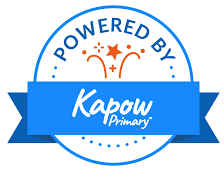ELSA – Emotional Literacy Support
What is ELSA?
There will always be children and young people in schools facing life challenges that affect their ability to engage with learning.
Some will require greater support to increase their emotional literacy than others. ELSA is an initiative developed and supported by educational psychologists.
It recognises that children learn better and are happier in school if their emotional needs are also addressed.
What is emotional literacy?
• Understanding and coping with the feelings about ourselves and others.
• Developing high self-esteem and positive interactions with others.
Being emotionally literate helps children focus better on their learning.
In ELSA we aim to provide support for a wide range of emotional needs:
• Recognising emotions
• Self-esteem
• Social skills
• Friendship skills
• Anger management
• Loss and bereavement
How does ELSA work?
Children are usually referred for ELSA support by their class teacher, senior leaders or by the SENDCO for their year group.
Following discussion of the referral forms, we identify and prioritise which children require a weekly programme for the next 6-8 weeks and then meet regularly to discuss progress. With the programme aims in mind, we then plan support sessions to facilitate the pupil in developing new skills and coping strategies that allow them to manage social and emotional demands more effectively.
How does the Emotional Literacy Support work?
• A regular slot during the school week for 30-40 minutes.
• Sessions can be individual or in small groups and tailored to the child’s individual needs.
• Sessions are fun and might include role-play, puppets, board games, art and craft, and stories.
• They include time to talk.
• A pupil’s progress will be reviewed on a half-termly basis.
Supporting - not fixing
Remember, ELSAs are not there to fix children's problems. What we can do is provide emotional support. We aim to establish a warm, respectful relationship with a pupil and to provide a reflective space where they are able to share honestly their thoughts and feelings.
It needs to be appreciated that change cannot necessarily be achieved rapidly and is dependent upon the context and complexity of the presenting issues. For children with complex or long-term needs it is unrealistic to expect ELSA intervention to resolve all their difficulties, however support will be designed to target specific aspects of a child's need. The Educational Psychologist that works with our school is able to offer advice on the suitability or nature of ELSA involvement in complex cases and it might sometimes be decided that a child’s issues are beyond the level of expertise that could reasonably be expected of an ELSA.
As a parent/carer, how can you help?
- By informing the class teacher if there are any issues that may be affecting your child.
- Please feel welcome to contact your child’s teacher or the ELSA/Learning Mentor working with your child if you have any questions.









